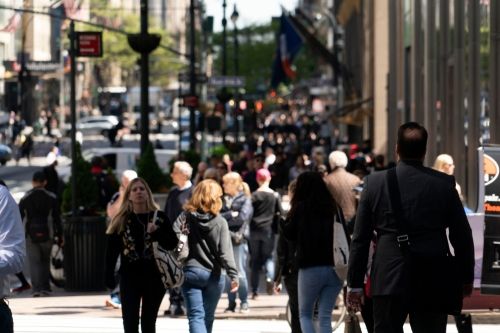ศาลสหรัฐฯ ประกาศว่าการคว่ำบาตรตัวผสม crypto ของ Tornado Cash นั้นผิดกฎหมาย

ภาคการเข้ารหัสลับได้รับชัยชนะครั้งใหญ่อีกครั้งหลังจากที่ศาลที่ห้าของสหรัฐฯ ตัดสินเมื่อวันอังคารว่ากระทรวงการคลังเกินกำหนดโดยคว่ำบาตร trac อัจฉริยะที่ไม่เปลี่ยนรูปของ Tornado Cash ศาลตัดสินว่าซอฟต์แวร์อัตโนมัติไม่สามารถจัดประเภทเป็นทรัพย์สินได้
คณะผู้พิพากษาสามคนที่ดูแลคดีนี้ตัดสินเมื่อวันที่ 26 พฤศจิกายนว่า Smart Con trac ไม่สามารถเปลี่ยนแปลงได้ และดังนั้นจึงไม่ได้เป็นเจ้าของหรือควบคุมในฐานะทรัพย์สินโดยนิติบุคคลหรือบุคคลใดๆ ภายใต้พระราชบัญญัติอำนาจทางเศรษฐกิจฉุกเฉินระหว่างประเทศ (IEEPA)
ตามที่ผู้พิพากษาระบุว่า ระบบ trac อัจฉริยะไม่สามารถจัดเป็นทรัพย์สินที่อยู่ภายใต้การลงโทษภายใต้กฎระเบียบที่มีอยู่ ศาลพบว่าการคว่ำบาตรของกระทรวงการคลังต่อผู้ผสม crypto นั้นผิดกฎหมาย และพวกเขาก้าวล้ำอำนาจที่รัฐสภา defi
กฎของคณะผู้ตัดสินสามคน OFAC เกินอำนาจของตนในการลงโทษ Tornado Cash
1/ วันนี้ ศาลอุทธรณ์สหรัฐฯ สำหรับรอบที่ 5 ตัดสินในคดี Tornado Cash ที่นำโดยผู้ใช้ซอฟต์แวร์ (Van Loon v. Treasury) โดยพบว่า " trac อัจฉริยะที่ไม่เปลี่ยนรูป (บรรทัดของรหัสซอฟต์แวร์ที่เปิดใช้งานความเป็นส่วนตัว) ไม่ใช่ 'ทรัพย์สิน' ของชาวต่างชาติหรือนิติบุคคล” https://t.co/G0vkoYzt8O
— สมาคมบล็อคเชน (@BlockchainAssn) 27 พฤศจิกายน 2024
The panel said the Office of Foreign Assets Control (OFAC) exceeded its authority in sanctioning Tornado Cash’s immutable smart contracts. It reversed a lower court’s decision granting the platform’s users a partial summary judgment.
Bill Hughes, a lawyer at Consensys, issued a detailed summary of the court’s ruling, indicating that the immutable smart contracts are nothing more than lines of code. Hughes also wrote that smart contracts are less like a “service” and more like a tool that is used in performing a service.
Hughes said the case will now proceed to the district court and emphasized that the new court judgment does not affect the crypto mixer’s blocked status.
“District court is handed back the case, with the idea that it has to decide the merits again while applying the law as the Fifth Circuit now says it applies, i.e., that the immutable contracts can’t be added to the sanctions list. It probably changes nothing else with TornadoCash being otherwise designated as blocked.”
– Bill Hughes
Paul Grewal, Coinbase’s Chief Legal Officer, wrote that the decision to block open source technology because of a small number of its malicious users is not what the U.S. Congress authorized.
Tornado Cash sanctioned by the U.S. Treasury for money laundering allegations
Tornado Cash found itself in the jaws of regulators in 2022 after the U.S. Treasury sanctioned the protocol. The Treasury alleged that the protocol laundered more than $7 billion worth of digital assets between 2019 and 2022. The U.S. Treasury published a public statement saying that crypto mixers that facilitate criminal activities threaten U.S. national security.
The United States Treasury Department added more than 40 crypto wallet addresses allegedly connected to Tornado Cash to the Specially Designated Nationals list of the Office of Foreign Asset Control (OFAC).
However, six Tornado Cash users, led by Joseph Van Loon, sued the Treasury with the support of Coinbase. The plaintiff claimed that the Treasury’s addition of 44 Tornado Cash smart contract addresses to the Specially Designated Nationals (SDN) list was not in accordance with the law.
In October, U.S.-based crypto policy advocacy group Coin Center filed a lawsuit against OFAC for sanctioning the crypto mixer. However, a Texas federal court judge ruled in favor of the U.S. Treasury that Tornado Cash was “an entity that may be subject to OFAC regulations. The plaintiffs appealed the judge’s decision and extended the case.
Land a High-Paying Web3 Job in 90 Days: The Ultimate Roadmap







